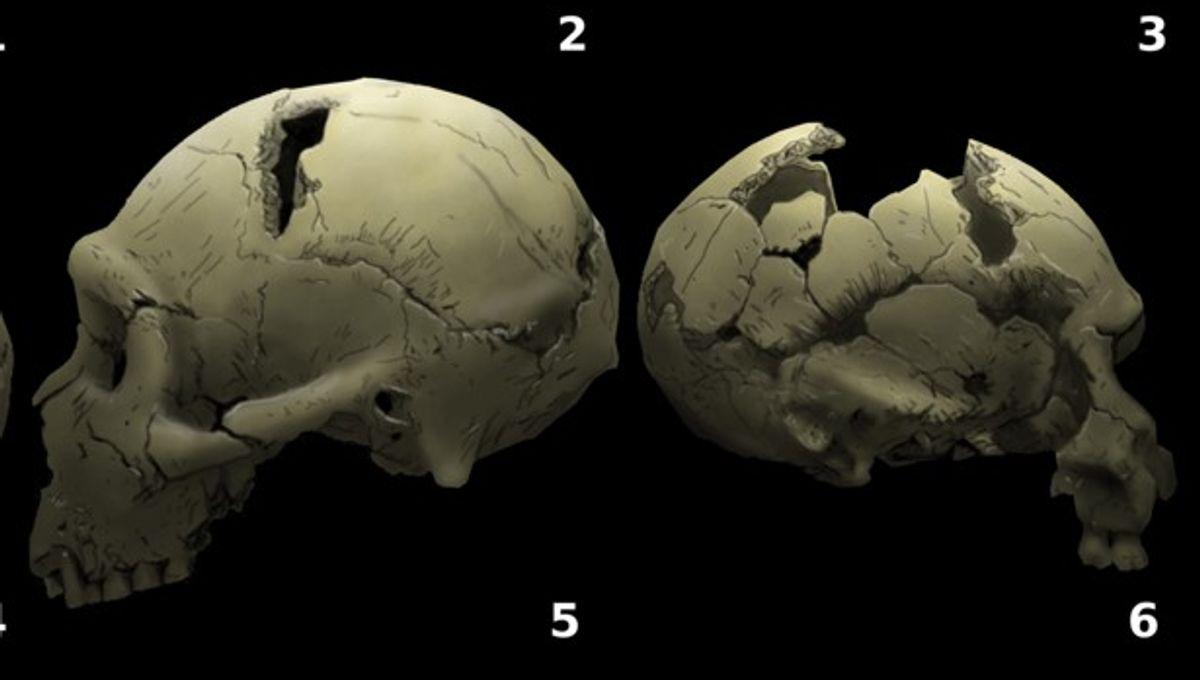-
Feed de notícias
- EXPLORAR
-
Páginas
-
Blogs
-
Fóruns
Rare 2-Million-Year-Old Infant Facial Fossils Expand What We Know About Prehistoric Human Children

Rare 2-Million-Year-Old Infant Facial Fossils Expand What We Know About Prehistoric Human Children
Prehistoric human babies probably looked just like their parents from the moment they were born. Not only would this have come as something of a relief to new parents back in the Pleistocene, but it’s also highly useful information for modern anthropologists, as it provides new insights into the development of facial morphology in early Homo species.
The rest of this article is behind a paywall. Please sign in or subscribe to access the full content. According to the authors of a recent study, adults belonging to species like Homo habilis, Homo rudolfensis, and Homo erectus can often be distinguished by their facial features. H. habilis, for instance, possessed a robust jaw with elongated tooth rows, while H. rudolfensis sported a foreshortened subnasal region, and H. erectus rocked a continuous brow ridge. However, because infant specimens are extremely rare in the fossil record, scientists were until now unsure if these species-specific traits were present from birth. To find out, the study authors examined three fragmented infant crania from South Africa and Ethiopia, all dated to between 2.31 and 1.95 million years ago. The three specimens all represent babies or young children that had died before their first permanent premolars had appeared, and were compared with 15 other prehistoric human crania belonging to slightly older juveniles. Ultimately, the researchers found that two of the infants could be identified as belonging to H. habilis and H. affinis erectus – which means it was closely related to H. erectus – while the third could not be confidently assigned to a particular species. Despite this, the authors note that the third child’s features are clearly distinguishable from those of earlier hominins like Paranthropus or Australopithecus, and that the specimen could easily be identified as Homo. They therefore conclude that “taxonomic diversity in early Homo was already evident in infancy,” meaning that Pleistocene babies already displayed facial traits associated with adults of their kind. Such a finding adds to the small but growing body of information regarding early Homo children. For instance, 400,000-year-old mammoth ivory pieces from Ukraine have been interpreted as toys used by the kids of an unknown extinct species, while 300,000-year-old “throwing sticks” found in Germany may have been used as practice weaponry by youngsters learning to hunt. There's even evidence that Neanderthal children living in Spain between 40,000 and 55,000 years ago may have collected marine fossils, in much the same way that modern kids collect stickers or toy cars. Combined with the new findings regarding the facial characteristics of Pleistocene kids, these discoveries are helping anthropologists to build a picture of what childhood was like for the earliest members of our genus. The study is published in the journal Nature Communications.


